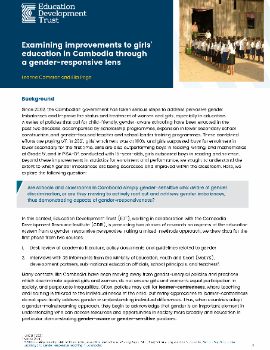
Examining Improvements to Girls’ Education in Cambodia Through a Gender-Responsive Lens
The Cambodian government has been successful in raising girls’ enrolment and academic achievement in recent years, with girls’ enrolment reaching 100% in 2021 and girls outperforming boys in reading, writing and mathematics at Grade 5 level. While this is hugely encouraging for girls’ education in the country, these statistics alone do not help...

Collaboration in the Cambodian TVET sector: Why does it matter?
The Royal Government of Cambodia (RGC) has promoted collaboration between TVET institutions and the private sector for better skills provision. However, there is still scepticism about collaboration between both parties. This article employs qualitative data to investigate different forms and degrees of collaboration between training providers and...
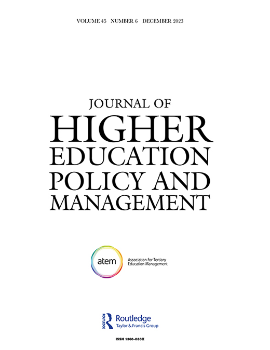
What Makes Academics (In)active in Higher Education Internationalisation: Evidence from Cambodia
This study explores the international engagement of academics and the factors influencing their engagement in internationalisation efforts in Cambodian universities. Data were gathered through online semi-structured interviews with academics and university administrators and later coded and analysed using reflexive thematic approach. The findings r...

Addressing All Learners’ Needs Through Gender-Responsive Pedagogy: The Case Of Cambodia
This blog post summarises key findings from recent research conducted by the Cambodia Development Resource Institute (CDRI) and Education Development Trust which investigates Cambodia’s journey toward gender-responsive education. Gender-Responsive Pedagogy, using FAWE’s (2018) framework, provides a lens for examining changes within Cambodian cl...
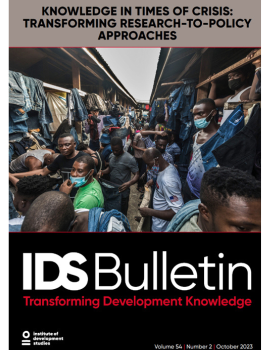
Lessons Learned from Mobilising Research for Impact During the Covid-19 Pandemic
During the Covid-19 pandemic, research organisations have strived to be resilient. This means navigating through the technical, operational, and political challenges to achieving successful research implementation. Particularly for local policy research thinktanks, the pandemic has made these challenges even more difficult to address. From the expe...
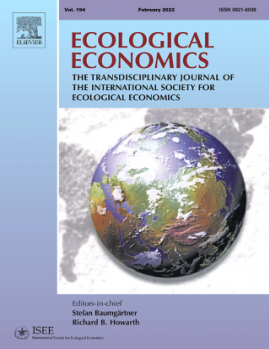
Water scarcity and support for costly institutions in public goods: Experimental evidence from Cambodia
Voluntary contributions to public goods are vulnerable to free riding. A potential solution is the implementation of a costly institutional arrangement that deters free riding behavior. In this paper, we analyze to what extent resource users are willing to bear those costs and vote in favor of costly institutions. We carried out lab-in-the-field ex...
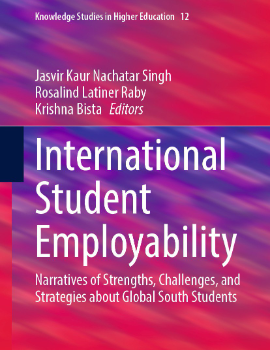
The Effects of International Experience on Self-Perceived Employability among Cambodian Students in China
This paper investigates the correlation between international experience in China and the self-perceived employability of Cambodian students using an explanatory mixed-methods approach. The findings suggest a positive correlation between international experience and students’ self-perceived employability, with technical knowledge and skills acquisi...
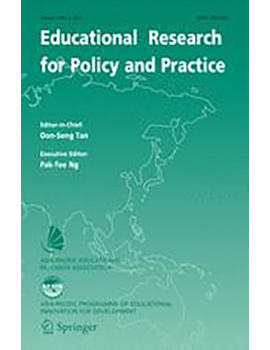
Upper Secondary School Tracking and Major Choices in Higher Education: To Switch or Not to Switch
This study aims to investigate the characteristics of students who switch versus those who do not switch when they transition from upper secondary to higher education. The data from 1338 students randomly selected from 21 HEIs in Cambodia in 2020 found that upper secondary school students are more likely than not to switch academic majors when they...
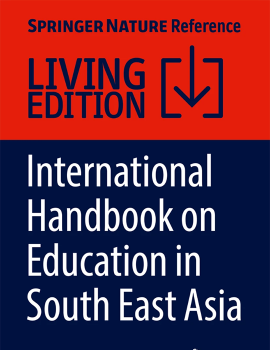
Vocational Education and Training in Cambodia
The Royal Government of Cambodia acknowledges the vital role of technical and vocational education and training (TVET) in developing a high-quality workforce to better respond to labor market demand and contribute to the national development agenda. In the past decade, with support from and collaboration with development partners, the Government ha...

Family Background as the Determinant of University Student's Technological Readiness: Evidence from Cambodia
While digital transformation around the globe has significantly gained momentum and speed, embracing technologies in our daily life is now beyond question. In this regard, we need to ask whether or not individuals are ready to accept and use technologies when provided and what really affects one's technology readiness. The main objective of this st...
